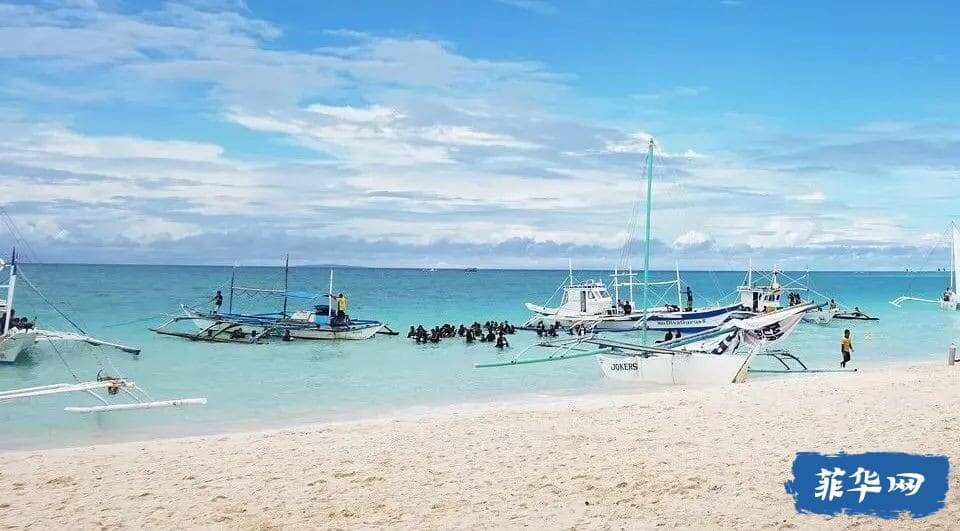The Philippines, with its world-class beaches in Boracay, stunning Palawan, low-cost diving in Davao, and super exciting cave exploration, is a cost-effective choice for holiday travel in Southeast Asia. If you are planning to travel recently or are going to the Philippines for the first time, this travel guide is worth saving:

1. Things to know before traveling to the Philippines
Before you go:
Dress code
You can wear light summer clothes all year round in the Philippines, and you can bring a thin jacket to avoid catching cold due to excessive temperature difference between morning and evening or too low air conditioning in air-conditioned rooms or cars;
When going to the beach, please bring swimsuits, swimming caps, swimming goggles, swimming rings, shoes that can absorb water, etc. according to your needs;
When going to the jungle where there are many mosquitoes, you need to wear long clothes and long pants, so please bring them with you;
Shoes should be light, fit, and suitable for walking. It is not advisable to wear newly purchased shoes or high heels.
personal daily necessities
Shavers, skin care products, cosmetics, sun hats, sunglasses, sunscreen, umbrellas, watches, pens, and notebooks, please bring them according to your needs;
Cash and bank cards
The Philippines does not circulate RMB. You need to exchange RMB into US dollars before going abroad, and then exchange it into Philippine pesos locally. Please call the customer service telephone of major banks to inquire about the exchange method. Please be sure to exchange it as soon as possible.
China Customs stipulates that each person can carry a maximum of 20000 yuan or equivalent foreign currency equivalent to 5000 US dollars, so the currency exchanged is sufficient;
There is a fee for checking the balance of bank cards in Boracay at ATMs in the Philippines, and not all card swipes are free. Some charge a handling fee ranging from 3.5%.
Suggestion: Be sure to ask if there is any handling fee before swiping your card.ATM machines in the Philippines first withdraw the card and then dispense the money; after withdrawing the card, quickly hold the card and wait for the money to come out;
Most shops in Boracay do not accept credit cards, so please prepare enough cash;
Electronic appliances
Please bring your own sealed bags or other waterproof packaging for cameras, camcorders, batteries, chargers, and memory cards to protect your electronic products and other valuables from damage when you participate in water activities;
If you need to use your mobile phone overseas, please activate international roaming before departure to ensure that your mobile phone can be used overseas;
The sockets in the Philippines are American two-hole or three-hole sockets. The domestic two-hole flat plugs can be used normally, but other types require plug converters.Hotel front desks generally have them available, but the quantity is limited. It is recommended that you purchase American standard plug converters in large domestic supermarkets and online electronics stores in advance.
2. How to exchange currency in the Philippines?
RMB is not circulated in the Philippines, so when traveling to the Philippines, you can exchange it for Philippine pesos at a domestic Bank of China. This is also recommended. However, since the amount of exchange is usually limited, you can generally exchange RMB for US dollars before going abroad. Exchange it locally for Philippine pesos.
You can also exchange U.S. dollars for pesos at the airport, or at banks, hotels, and currency exchange agencies.There are currency exchange shops in Boracay, Beach Road, Main Road, and D'Mall. However, the exchange rates at the airport and shopping malls are very low, so they are not recommended.
3. How to withdraw cash from ATMs in the Philippines using China UnionPay cards?
UnionPay cards
China UnionPay has opened POS card swiping and ATM cash withdrawal services in the Philippines. You can use UnionPay cards to withdraw local currency (Philippine Peso) at ATMs in the Philippines. UnionPay cards cannot be used for bank counter transfers and cash withdrawals abroad. Choosing UnionPay network consumption, compared with other bank card networks, does not charge a currency conversion fee ranging from 1% to 2%.
Credit cards are accepted in the Philippines. Many hotels, restaurants and commercial establishments accept major credit cards - Visa, MasterCard, American Express, etc. However, if you are outside of Manila, credit card transactions will be charged a 5% to 12% fee. Most Philippine banks can withdraw cash from cards.
Friendly reminder
Philippine ATM machines can withdraw up to 10000 pesos each time, and the service fee for each transaction is 200 pesos.
It is best not to swipe your card in Boracay. Whether it is a UnionPay card or a credit card, the handling fee will be very high.
Don't check your balance easily, this service is chargeable.
Philippine ATMs refund cards first and then dispense cash.Be sure to note that this is different from China. After returning the card, hold the card and wait for the money to come out.
4. Is tipping required in the Philippines?
Tipping in the Philippines is also a recognition of helping the other party, but it is not mandatory to tip. It is usually paid in banknotes, such as 20 pesos (almost 3 yuan) or 50 pesos under normal circumstances; if it is a special massage In stores, the tip is usually 50 pesos; if you are traveling outdoors and encounter Filipinos who take the initiative to help, depending on the degree of help, the tip should be controlled within 100 pesos in banknotes.
5. What is the consumption level in the Philippines?
菲律宾消费水平和国内二线城市差不多。举些例子:矿泉水 15p(2元);啤酒20p(3元);高档餐厅聚餐人均 500p(70元)
6. Is the local public security in the Philippines good?
Generally speaking, tourist attractions are relatively safe, although overall they are not as good as domestic security.However, security guards can be found almost everywhere in shopping malls, restaurants, airports, etc. in the Philippines. If there is an emergency, full-price vehicles can communicate with the local police in a timely manner.
Note: Emergency contact number:
Philippine police phone number: 117
Philippine National Police Intelligence Division Duty Room: 7266863
Philippine National Police Intelligence Department External Relations Division: 7253849
Chinese Embassy in the Philippines: 303-7019, 0917-8972695
7. What languages are commonly spoken in the Philippines?
The Philippines is a multilingual country with nearly 170 native languages. Among the languages, the official language of the Philippines is Filipino, followed by English as the second popular language in the country, and most Filipinos are good at English.So if you don’t know English, it is not recommended to go alone.
8. What do Filipinos believe in and taboo about?
Most Filipinos believe in Roman Catholicism; a small number of people believe in Islam; and ethnic minorities mostly believe in primitive religions.Filipinos are very taboo about the number "13".It is believed that "13" is the "evil god", a symbol of bad luck and disaster, and an extremely disgusting number.
They are taboo about passing things or food with their left hand.The left hand is considered a dirty and despicable hand, and using the left hand is a great disrespect for people.They are generally reluctant to talk about politics, religion, the state of their country and corruption.Therefore, there is less discussion of local political and religious matters in the Philippines.
9. Things to note when traveling to the Philippines
1.出境菲律宾时,成人可免税携带1.4公升的酒类,香烟200支、雪茄50支、烟丝250克。
2. Not all hotels in the Philippines have toothpaste, toothbrushes, slippers, etc., so you need to prepare them yourself in advance.
3. Manila Airport is divided into two parts: domestic and international. Although they are not far away, if you go the wrong way, you may delay your flight. So before you get in the taxi, be sure to show your ticket to the driver and confirm with him where you are going. which place.
4. If you pick up starfish, shells and other animals, the customs will fine you or detain you. Pay attention to safety when participating in activities such as going out to sea, snorkeling, deep diving, whale watching, etc.!








